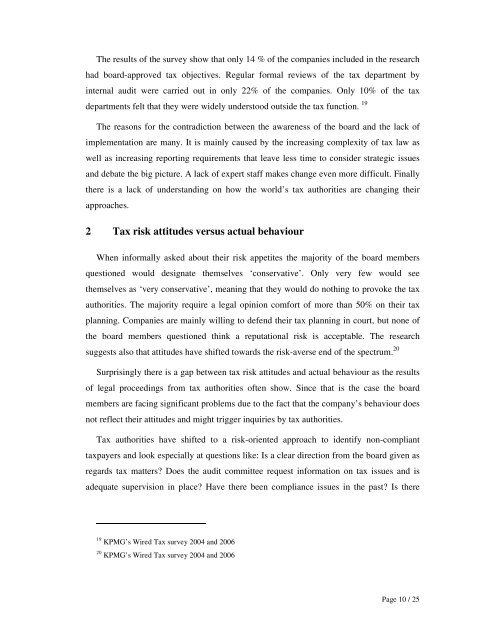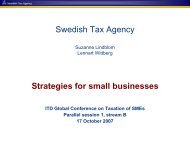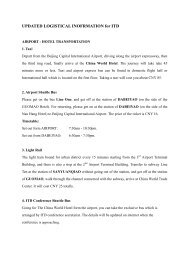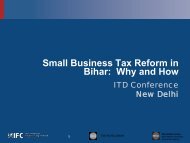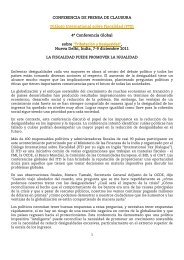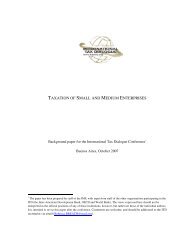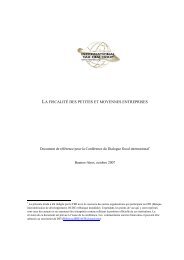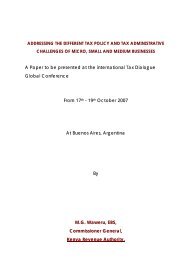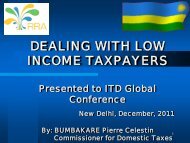Tax Risk Management and Board Responsibility - International Tax ...
Tax Risk Management and Board Responsibility - International Tax ...
Tax Risk Management and Board Responsibility - International Tax ...
You also want an ePaper? Increase the reach of your titles
YUMPU automatically turns print PDFs into web optimized ePapers that Google loves.
The results of the survey show that only 14 % of the companies included in the research<br />
had board-approved tax objectives. Regular formal reviews of the tax department by<br />
internal audit were carried out in only 22% of the companies. Only 10% of the tax<br />
departments felt that they were widely understood outside the tax function. 19<br />
The reasons for the contradiction between the awareness of the board <strong>and</strong> the lack of<br />
implementation are many. It is mainly caused by the increasing complexity of tax law as<br />
well as increasing reporting requirements that leave less time to consider strategic issues<br />
<strong>and</strong> debate the big picture. A lack of expert staff makes change even more difficult. Finally<br />
there is a lack of underst<strong>and</strong>ing on how the world’s tax authorities are changing their<br />
approaches.<br />
2 <strong>Tax</strong> risk attitudes versus actual behaviour<br />
When informally asked about their risk appetites the majority of the board members<br />
questioned would designate themselves ‘conservative’. Only very few would see<br />
themselves as ‘very conservative’, meaning that they would do nothing to provoke the tax<br />
authorities. The majority require a legal opinion comfort of more than 50% on their tax<br />
planning. Companies are mainly willing to defend their tax planning in court, but none of<br />
the board members questioned think a reputational risk is acceptable. The research<br />
suggests also that attitudes have shifted towards the risk-averse end of the spectrum. 20<br />
Surprisingly there is a gap between tax risk attitudes <strong>and</strong> actual behaviour as the results<br />
of legal proceedings from tax authorities often show. Since that is the case the board<br />
members are facing significant problems due to the fact that the company’s behaviour does<br />
not reflect their attitudes <strong>and</strong> might trigger inquiries by tax authorities.<br />
<strong>Tax</strong> authorities have shifted to a risk-oriented approach to identify non-compliant<br />
taxpayers <strong>and</strong> look especially at questions like: Is a clear direction from the board given as<br />
regards tax matters? Does the audit committee request information on tax issues <strong>and</strong> is<br />
adequate supervision in place? Have there been compliance issues in the past? Is there<br />
19 KPMG’s Wired <strong>Tax</strong> survey 2004 <strong>and</strong> 2006<br />
20 KPMG’s Wired <strong>Tax</strong> survey 2004 <strong>and</strong> 2006<br />
Page 10 / 25


